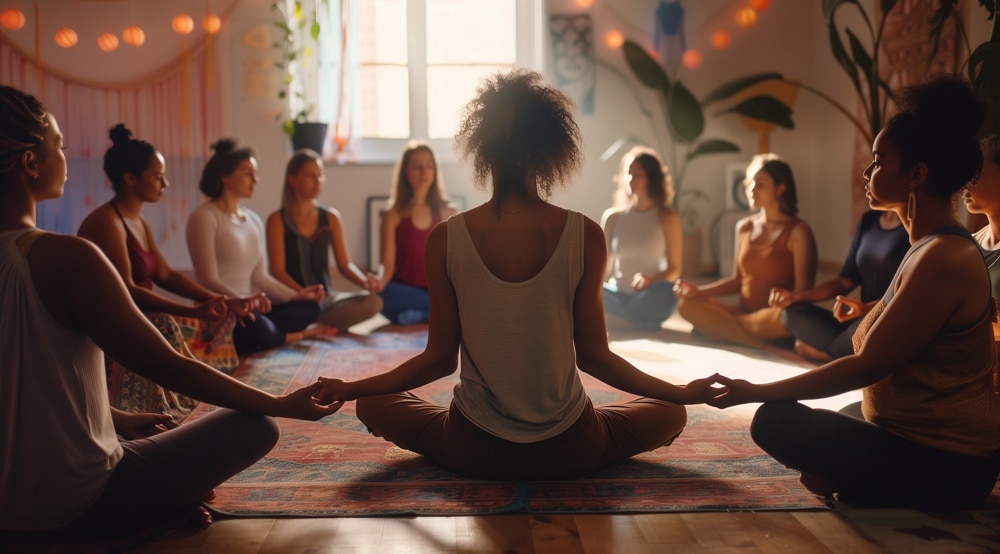
Recovery is nourished by truth in all forms. Liberation comes not only from heart-opening truths, the kind that melts us like butter in the sun but also from ugly, uncomfortable ones. The kinds of truths that make us squirm with a crawling unease, may be the most freeing of all.
In this article, we’ll do our best to talk about something that is no fun to think about, a shadowy, but valuable truth. This liberating truth is: that there is a pretty high probability of relapse, even after getting professional help.
Any relapse could be our last. The last because it’s the one that leads us to turn our backs on the sweet lies of addiction forever, or the last because it’s the one that gets us, for good.
A life in sobriety is not guaranteed, but rather something we must daily choose and pursue with every ounce of life force and will given to us.
Relapse statistics
It sure would be nice if, after all the hard work, economic expense, and the sheer time it takes to get clean and start a life in recovery, we could at least count on favorable odds of survival.
Actually, the odds are about 50-50. The National Institute on Drug Abuse says there’s a 40-60% chance of relapse, on average, across different drug categories.
Addiction Group, a site sharing data about addiction and recovery, cites relapse rates as high as 90% for certain drugs, such as opioids. 75% percent of people receiving treatment for stimulants relapse in the first five years of recovery. Alcoholism relapse rates fall in the 40-60% range, though some studies show more dire outcomes, suggesting we can expect more like 8 out of 10 individuals to relapse within the first year after treatment.
You might be thinking: where’s the liberation in all of this truth? Isn’t this depressing? Am I doomed to fail? Why work so hard when my chances of making it are so bad?
That’s a serious question to sit with and to hold with reverence. Let us not bypass it. Let us not miss the grimness.
But all darkness holds a grain of light. Here’s one grain: you could also see the reverse, that a percentage of seriously addicted people manage not to relapse.
Taking a glass-half-full approach, 50-50 odds means it’s equally likely that the liberating, healing force within you wins out. This fact alone is remarkable, at least when you’ve seen how bad it can indeed get in some addiction cases.
All of this shows the danger and also shows what’s possible. What can we do to help ourselves and our loved ones be in that percentile?
Why women relapse
It’s good to remember that relapse is caused most of all by the phenomenon of addiction itself. Prolonged exposure to addictive substances changes the human body dramatically and irreversibly.
Some positive repairs and regeneration of physiology are possible in recovery, but halting the advancement of the disease is the only realistic hope. We do not regain our pre-addiction body. As they say in AA, “You can’t turn a pickle back into a cucumber”.
If that’s true, how is it that we recover and go on to live lives of joy and meaning? The answer is: that we find new pathways, workarounds, and ways to repair our hearts and minds so that what got changed in the body does not determine our fate anymore.
Since addiction never really is fully uninstalled from the body, relapse is always a risk. Relapse isn’t so much a bug in our recovery, as a core feature of the addiction that still lives in us, lying in wait for us to lose focus on recovery.
Another way to say this is: if we were not prone to relapse, you wouldn’t use the word addict to describe us. It is part of the diagnostic criteria of addiction to establish that there have been past failed attempts to stop using the substance.
It is this peculiarity of broken willpower, and inability to act in one’s own interests nor to obey one’s own higher intelligence, being instead completely overrun by appetites and urges gone rogue, that defines addiction.
Within that, there are several common causes for relapse. It’s helpful to be aware of these so that they do not blindside us entirely.
1. Women are more vulnerable to relapse than men
According to the National Institute on Drug Abuse, women are more vulnerable to relapse than men. The reasons are considered to be psychological as well as biological, as subtleties of neurobiology and hormones are affected differently than in men.
What to do about this? Take extra care. Do not diminish or self-gaslight what your emotions, especially your pain, are telling you. Listen to the female experience – it is often ignored. In the case of addiction, we do so at our own peril.
2. Withdrawals
The top reason that people relapse is because of overpowering physical and psychological discomfort during withdrawal from the substance. The combination of painful physical symptoms and emotional agony is often too much for people, and they are pulled back in.
For this reason, it’s wise to check yourself into a professional facility for detoxification, such as a medically supervised detox like the one we offer at Villa Kali Ma. Initial withdrawals are over relatively quickly, within a week to ten days, but they are fierce. These withdrawals are dangerous and can kill a person if not medically overseen, especially in the case of alcohol, and prescription drugs like opioids (OxyContin) or benzodiazepines (Xanax, Ativan, Klonopin).
Examples of overwhelming physical withdrawal symptoms may include nausea, vomiting, sweating, muscle pains, tremors, seizures, and psychosis. Emotional torment may include severe anxiety, panic attacks, deep depression with suicidal feelings, and bizarre delusions and hallucinations.
Post-acute withdrawals refer to the ongoing symptoms and effects, which may linger for many months or even years, depending on each individual case. While these are more easily addressed with gentler interventions, they should not be underestimated, either. Depression, anxiety, suppressed immunity, ongoing physical pain, and other impacts can take a toll, and pull a person into using again.
3. Trauma and Mental Health Disorders
Even when we are able to get through the shorter-term wave of withdrawals, our next challenge is to face our mental state and our emotional health.
For the majority of women who have substance abuse problems, this means dealing with our traumatization. It means finding ways to mitigate mental health symptoms, like anxiety and depression. If we do not have adequate, timely support for doing the emotional work that is necessary to heal from our emotional damage, our chances of staying clean and sober plummet.
If we are appropriately committed to doing our step work in our 12-step program, that will guide us through the mental and emotional changes that are necessary to recover. It is also highly recommended to enter into therapy and to get specialized attention for trauma healing.
4. People, Places and Things
Another major cause of relapse is placing ourselves in physical proximity to people, places, and things that are linked to our past history of using substances. People who are still using drugs and alcohol, people who are emotionally charged for us (family, friends, enemies, loved ones, old flames, etc), and people who are just associated with our use for whatever reason are all sources of trigger to relapse.
Places we used to frequent when in our addiction, or which are new to us but frequented by other people who are using drugs and alcohol actively, are clear danger zones. But due to the complicated ways that triggers work, our list of places may include locations in themselves benign, but made dangerous by our personal connection to them during past phases of life.
Finally, even things, like objects, movies, music, and sounds, can suddenly act on the body to release the state of craving.
5. Underestimating Addiction
Perhaps the simplest way to explain how and why relapse happens is that each person typically needs to find out for themselves, through their own experiences, how formidable a foe addiction really is. Addiction infiltrates us in every aspect – our bodies, our minds, our hearts, our very sense of who we are, and what we are doing here in life.
In recovery, we have a chance to start over, but it requires a steep learning curve. We must find a way to be much more wakeful, present, and self-responsible than we ever dreamed a person has to be. However much we think recovery asks us to change, it is more than that.
Due to the fact that many of us just can’t quite conceive how thoroughly we must change in order to recover, we may have many phases of getting complacent, losing our fear, becoming bored, feeling sorry for ourselves, overestimating our progress, broiling with resentments, nourishing a sense of victimhood, and in general starting to think things which perk up the ego, but aren’t actually correct. All of these forms of fantasy, deception, and manipulation pull us back to the addict.
It can take some years of experience to detect the difference between our own self-sourced thoughts and the thoughts that are coming from addiction. Living in fear doesn’t help, but we must be wisely apprised of the facts about addiction. We can never afford to lose our vigilance and wariness, and we must, if we want to live, learn to discern the difference between the voice of truth, and the slippery, self-serving thoughts and feelings that arise when the inner addict is coming around, asking to be let back in.
6. Intimacy too Soon After Getting Sober
Dating isn’t recommended in the first year of recovery and is generally approached with caution and support within recovery circles. The reason for this is that intimacy, sex, romance, fantasy, and intrigue are all closely linked to relapse.
Many people relapse over a relationship or romantic scenario, that has gone south, or even one that has gone well. Heightened emotions, self-destructive urges, and our deepest wounds are connected to love and sex. Likewise, inappropriate entanglements, especially in dramatic scenarios or with unhealthy choices of partners, are so common as to be predictable in our first years of trying to recover. The addict within often hides under the cover of “love” and romance and its roller coasters of drama, so it’s wise to watch out for that, especially in the beginning.
Holiday Relapse
Many people relapse over the holidays. The holidays tend to bring us into contact with people, places, and things related to our personal history. The holidays are also linked to painful emotions for many, including isolation and grief, which are triggers. Finally, the holidays are associated with celebration, blowing off steam, and excess. Extra caution is advised during this season.
Ways to Prevent Relapse

Relapse may be common, but we also can’t afford to be fatalistic about it. We have to try our very best to succeed at staying sober and hope we are among the group of people who make it.
If a relapse were to grab us again, the chances that it takes many more years out of us would be very high. It might even kill us (or someone else). Make no mistake, if a relapse does happen, it will be bad for us.
So in the words of Julia Cameron, let’s pray to catch the bus, then run like heck.
Here’s how to do your very best to prevent a relapse:
1. Daily Contact with Recovery People
The best way to nurture your ability to live in the eternal now moment of freedom, where the gift of recovery exists, is to place yourself with people who are already living that reality. You can find these people in the halls of AA and other 12-step recovery circles. No, not every single person there is free. But there is a higher percentage here than anywhere else.
There are many ways to be in daily contact with recovery people. The most powerful is to be physically present in meetings. One meeting a day for the first year is not too much, if you are serious about your recovery you will understand how these meetings give you time, rather than taking time away.
It is also wise to have daily phone calls, daily step work, and a volunteer position that requires you to be accountable. Whatever you do, and however you do it, do not let yourself get separated from the people and places where recovery exists.
2. Do Your Psychological Healing Work
In addition to psychological healing which will come as a result of participation in your recovery community, it’s highly recommended to get individual therapeutic support, especially when mental health problems like depression and anxiety are present in your experience. Trauma must also be addressed as soon as humanly possible.
3. Get Trauma Treatment
If you have any reason to believe you may have trauma, from a childhood of neglect or abuse, and most especially from sexual abuse or assault in any form, it is highly recommended to receive healing for that right away.
Timely trauma healing makes the chances of relapse much, much lower. This is the driving reason behind Villa Kali Ma investing so heavily in trauma therapies, to the point of opening our own trauma healing center for women, The Retreat.
If you’re not sure whether you have trauma, but you are a woman with a substance abuse problem, chances are high that you do. The vast majority of women with substance use disorders also have trauma.
Villa Kali Ma can help prevent relapse

Villa Kali Ma is dedicated to helping women recover lives of freedom, joy, and purpose. We know what it’s like to have the odds against us and to nevertheless prevail.
Every day, we help women find their way back to the land of the living, through holistic healing methods and evidence-based clinical approaches that treat addiction, mental health disorders, and trauma. If you’re worried about relapse, for yourself or someone you love, reach out to talk over your options!

